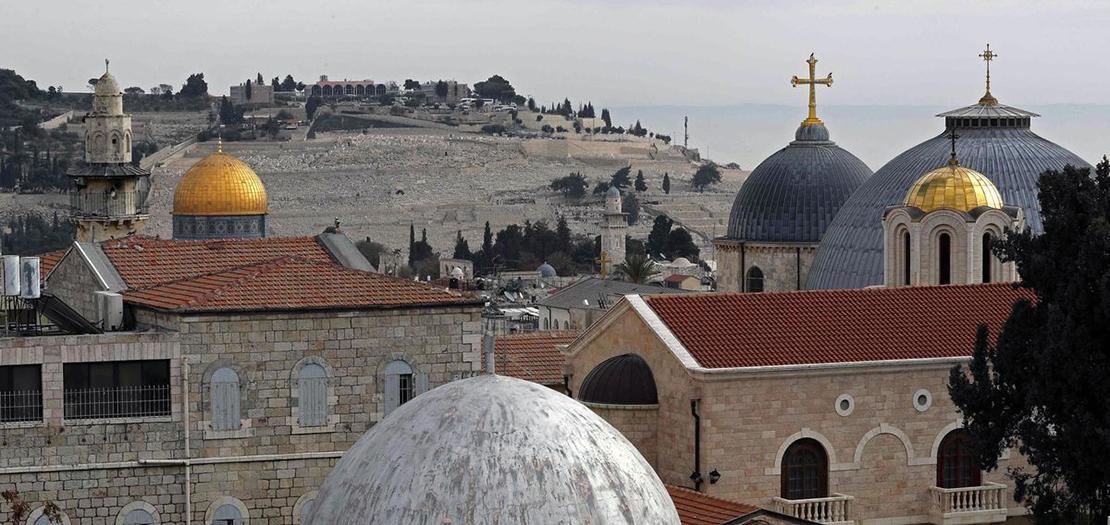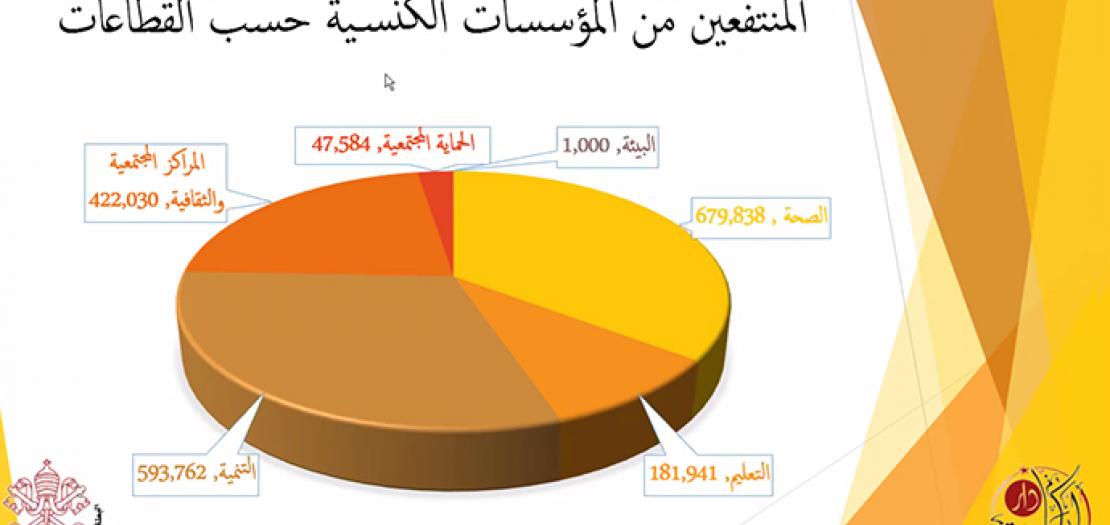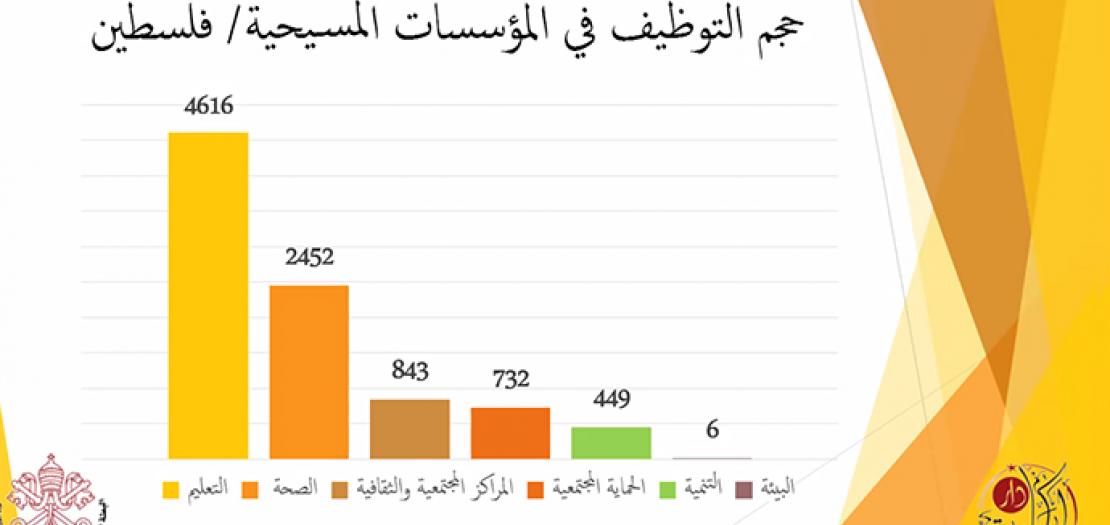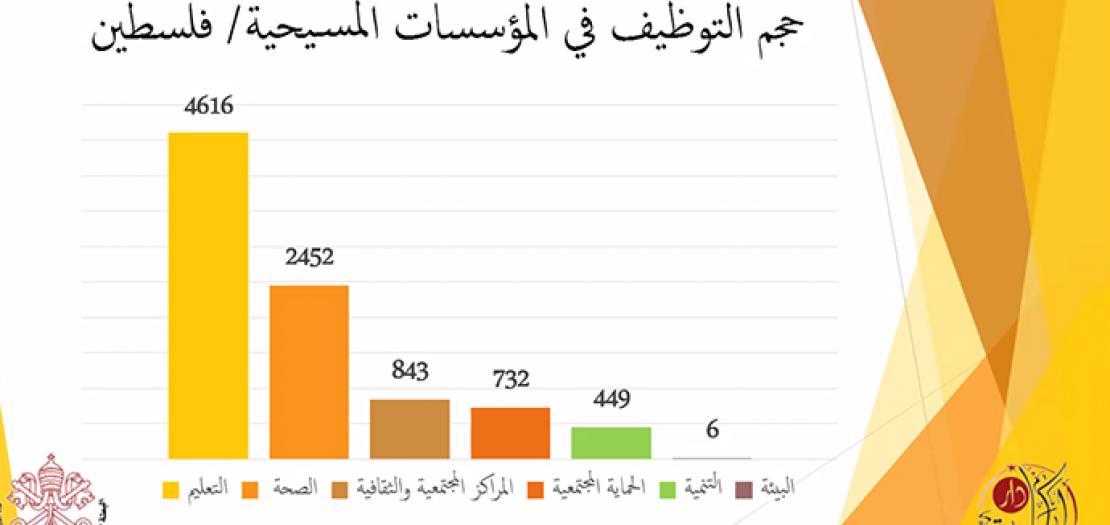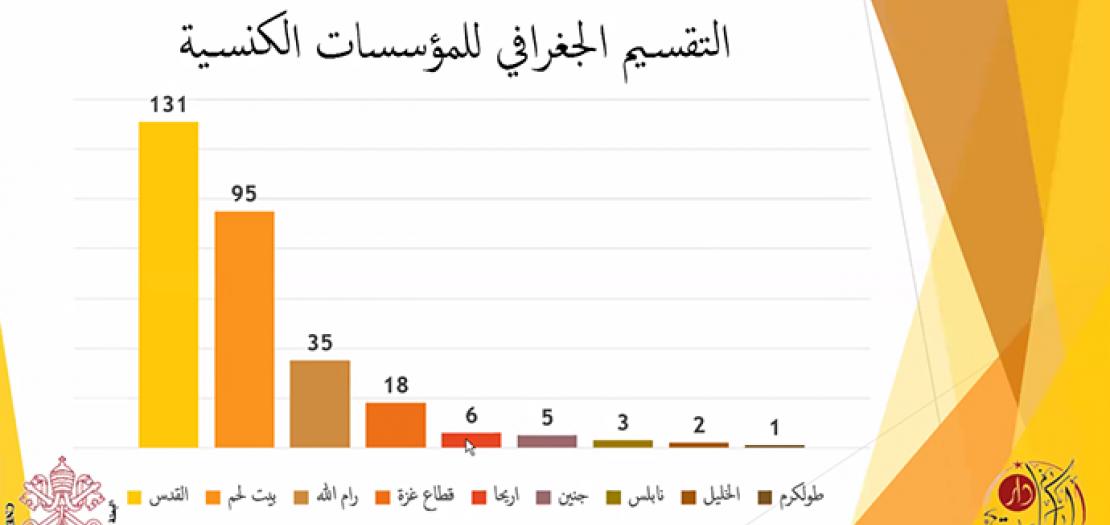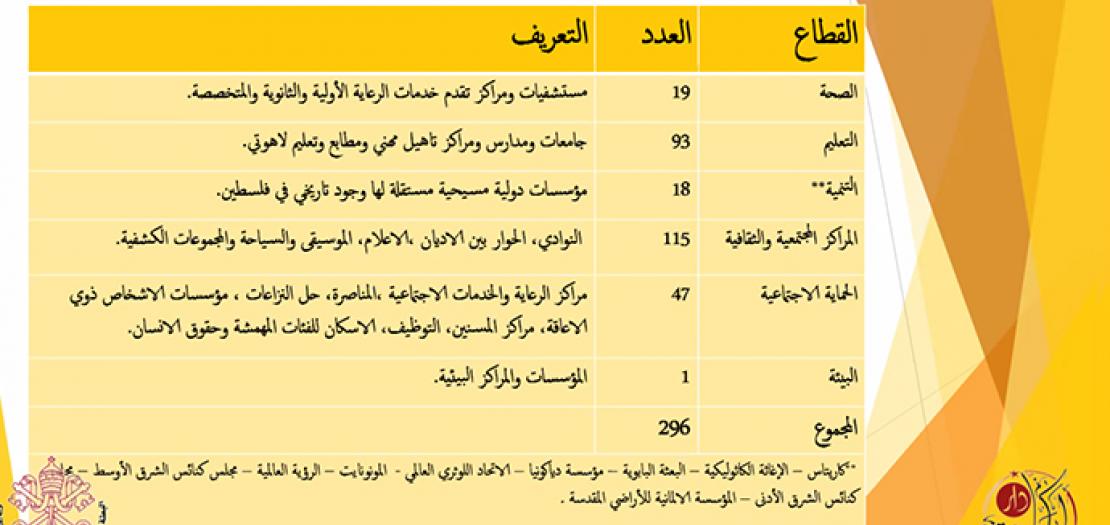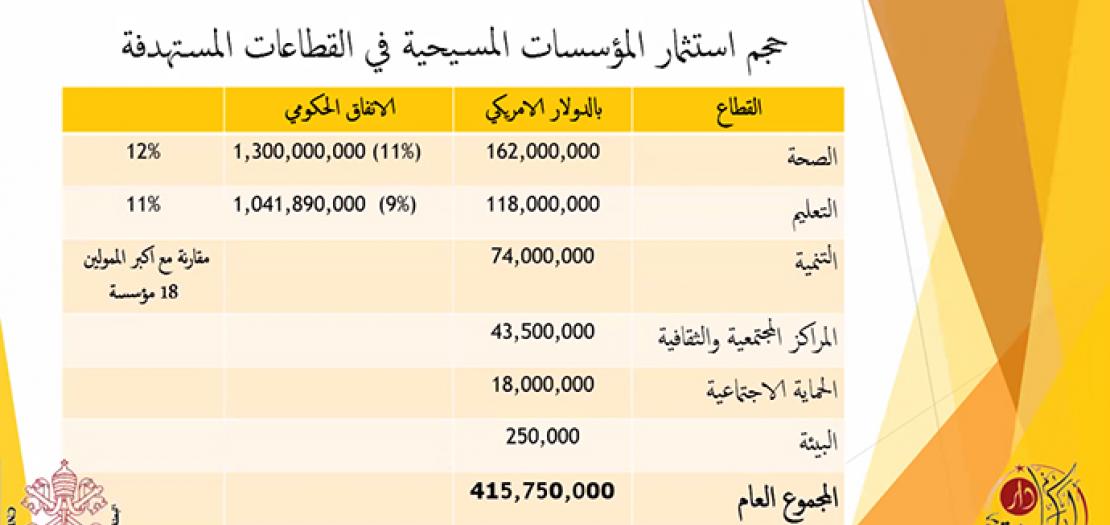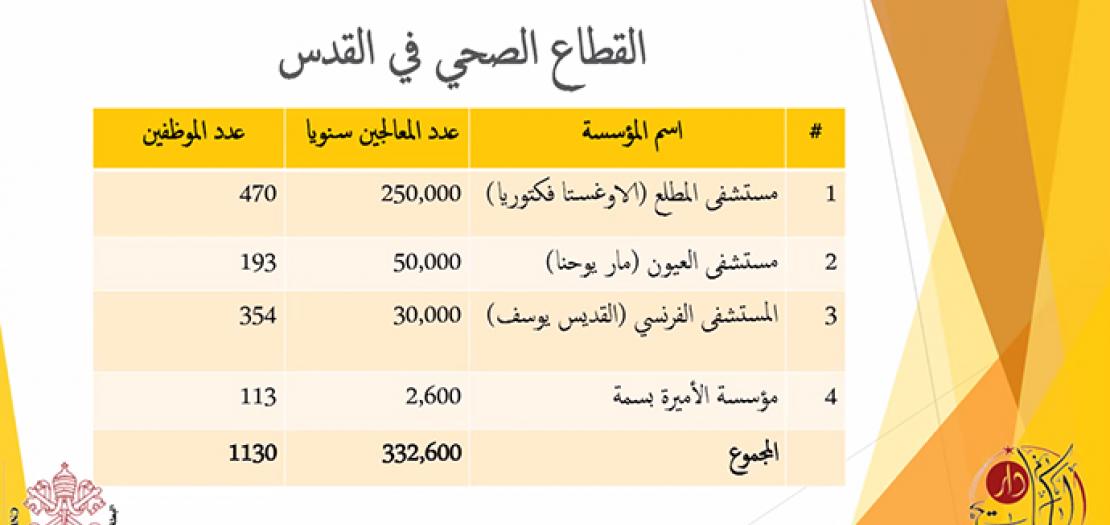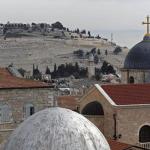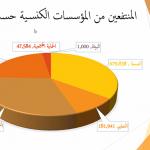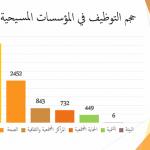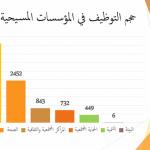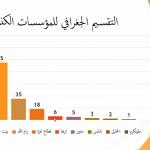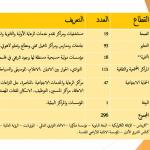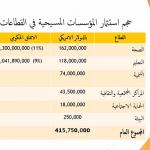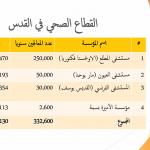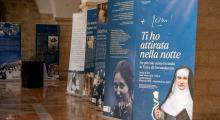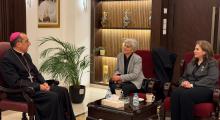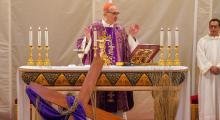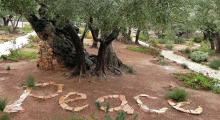Issued by the Catholic Center for Studies and Media - Jordan. Editor-in-chief Fr. Rif'at Bader - موقع أبونا abouna.org
Dar Al-Kalima University College of Arts and Culture in Bethlehem and the Pontifical Mission in Jerusalem held a press conference on Tuesday, March 16, to announce the results of a survey study on Christian institutions operating in the Holy Land.
The study dealt with the role of ecclesiastical institutions in the Holy Land and their impact on the society. Senior Development Consultant George Akroush , from Jerusalem, was assigned the duty to carry out this study which lasted for five months, and aimed to explore ways that maintain a strong and vibrant Christian presence in the Holy Land by studying the role and contributions of several Christian organizations operating in the area. This study may inspire further research that would complement the efforts of churches in order to comply with the growing needs of the Palestinian community.
Akroush presented the results of this new comprehensive study, which unveiled the outstanding contributions of the various Christian organizations operating in the Holy Land and their decisive effect on the local Palestinian community in all sectors. The study also proved that despite the dwindling number of Christians due to the hemorrhage of emigration, the Christian development and humanitarian work continued to flourish by providing the necessary and vital support to the members of the Palestinian people, regardless of their political and religious affiliations.
The study covered 296 Christian institutions in Jerusalem, the West Bank, and Gaza Strip. It showed that these institutions play a leading role in employment as there are 9098 employees (5,017 are Christians and 4,081 are Muslims).
The study pointed out that $416 million are spent annually in vital sectors like medical care, social services, vocational training, and development aid.
A total of four hospitals out of six in Jerusalem, namely 67 per cent of the hospitals, are affiliated with Churches. They treat 330,000 people every year and provide high-quality services which include pediatric hemodialysis, pediatric cancer services, complex cardiac operations, special maternal health, blood bank, eye care, and other advanced services for people with disabilities.
During the press conference, Rev. Dr. Mitri Al-Raheb, founder and president of the Dar Al-Kalima University College of Arts and Culture, affirmed that "despite the decline in the number of Christians… the role of churches and ecclesiastical institutions is still clearly visible, and this is what I confirmed once again in the study. The Christian Palestinians, even if they are not numerous, they play through their institutions an indispensable roleas they constitute part of the Palestinian fabric."
Mr. Joseph Hazboun, regional director of the Pontifical Mission, stated that Christian ecclesiastical institutions “have been playing a major role in serving the Palestinian people without discrimination for many decades, especially in the health, education and social protection sectors, that is why the Pontifical Mission has strived since its inception to support these institutions and help them continue providing their qualitative and distinguished services." He added that this study constitutes" an important incentive that pushes the Pontifical Mission in Jerusalem to continue its work in this field, while focusing on the youth sector which is a vital sector that needs more studied care."
Mr. Samer Salameh, Palestinian ministry of labor undersecretary said: “We highly appreciate the great role played by the Christian ecclesiastical institutions in Palestine. This role is an affirmation of the entrenchment and embodiment of these churches in the Palestinian society and their effective contribution to building the homeland. We always look forward to consolidating the relationship, cooperation and partnership between the government and Christian institutions in their capacity as Palestinian civil society institutions that strive to provide excelling services to our people. We are also keen to facilitate the work of these institutions, and support them."
It is worthy to note that the study, funded by Dar Al-Kalima University College of Arts and Culture and the Pontifical Mission, is the first of its kind in Palestine. It deals with important issues such as the size of funding, employment, as well as the targeted vital sectors. This study is the most comprehensive one so far, as it will serve as a baseline for future strategies and pave the way for any relevant future study.


